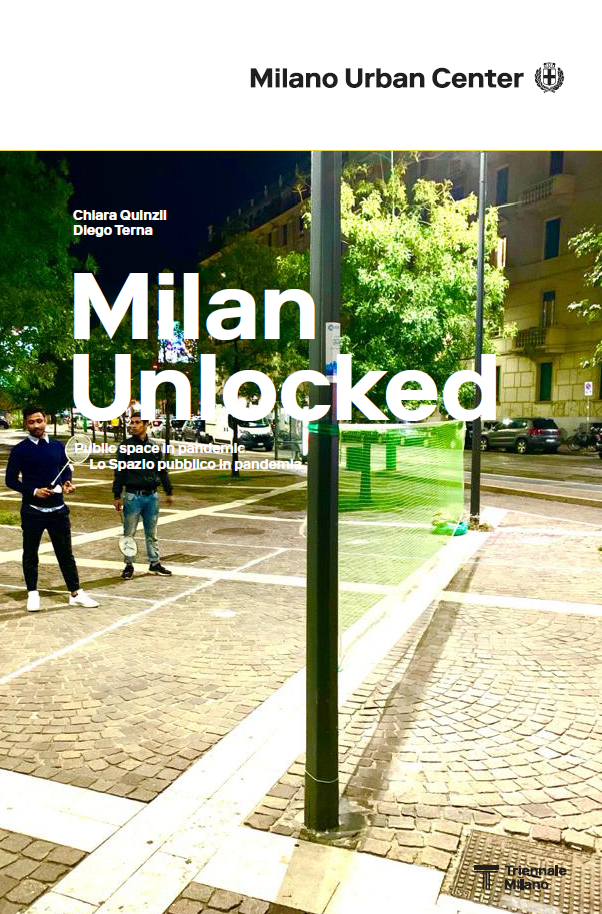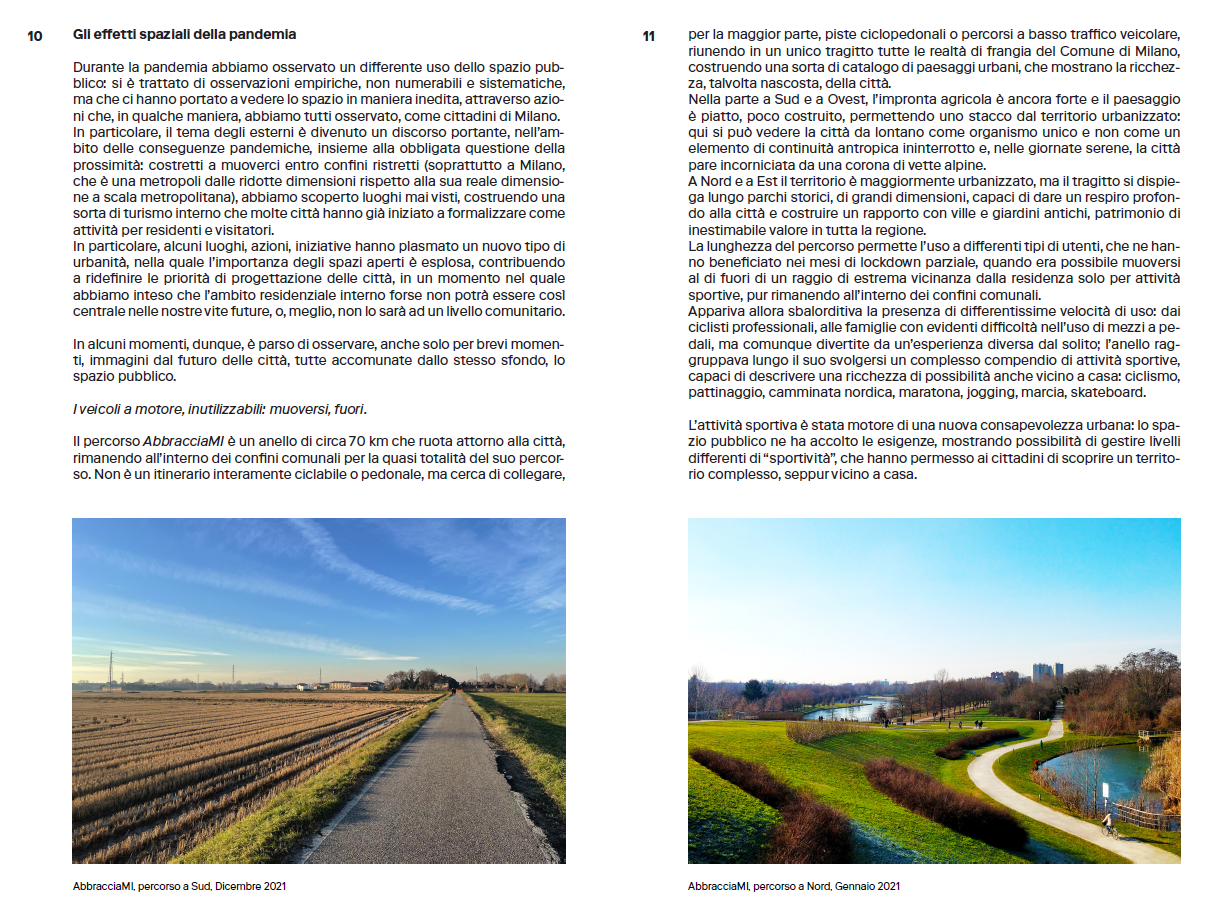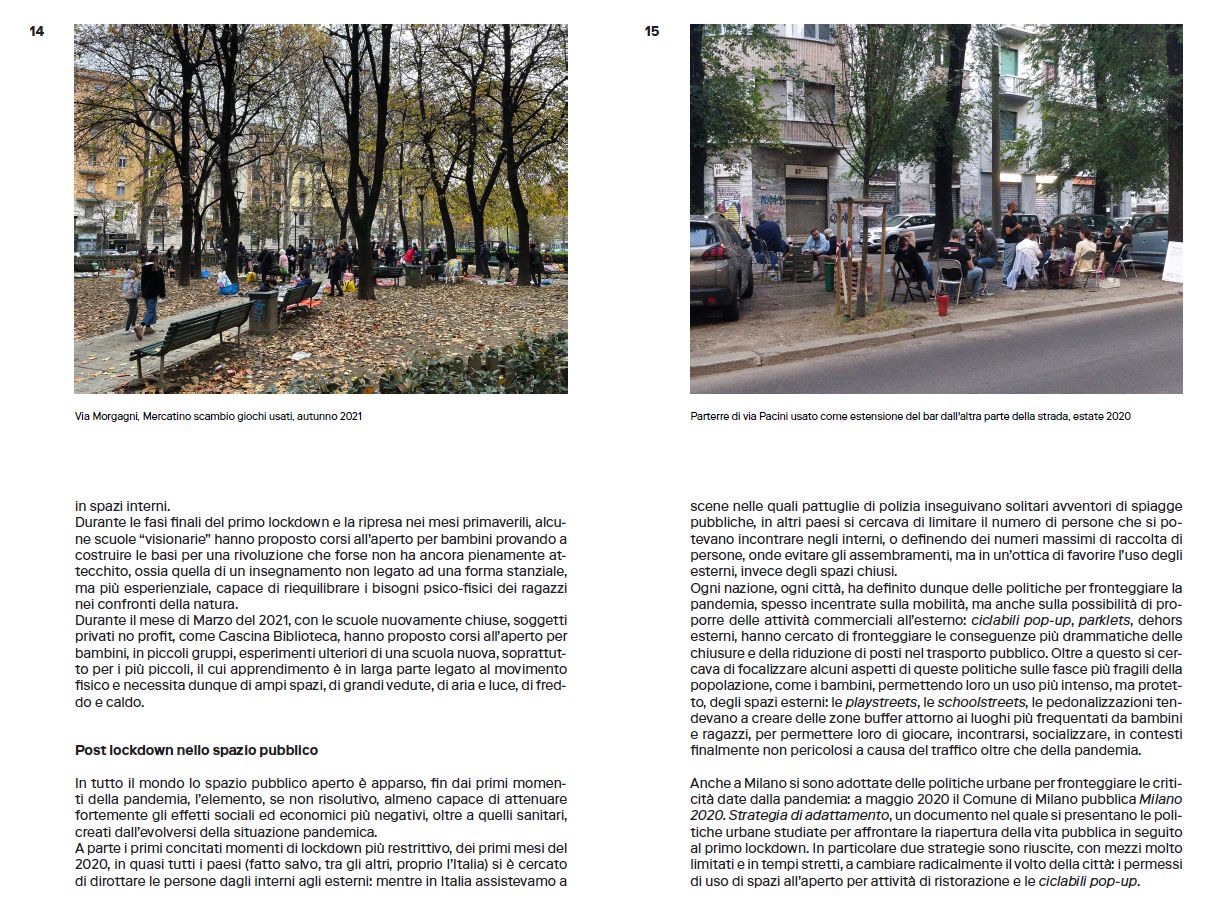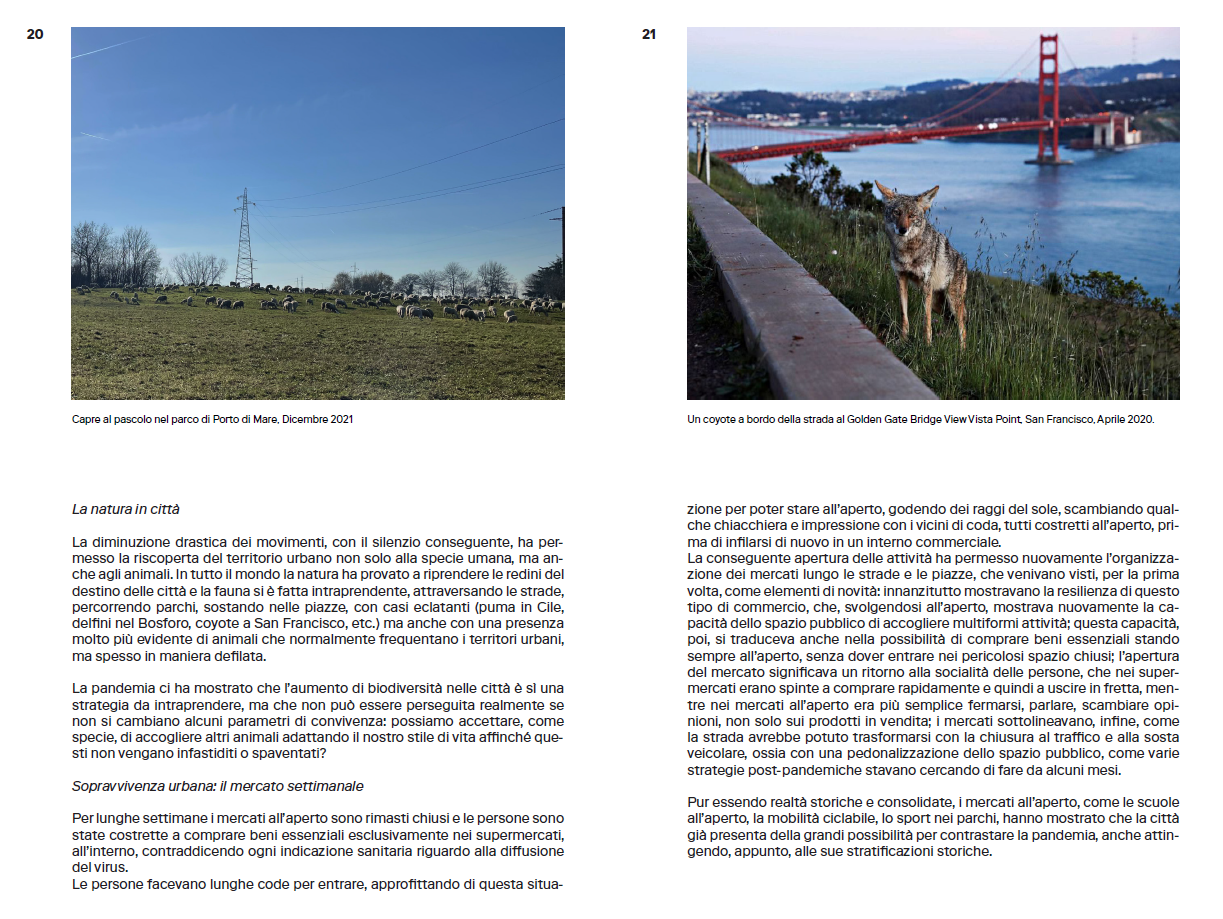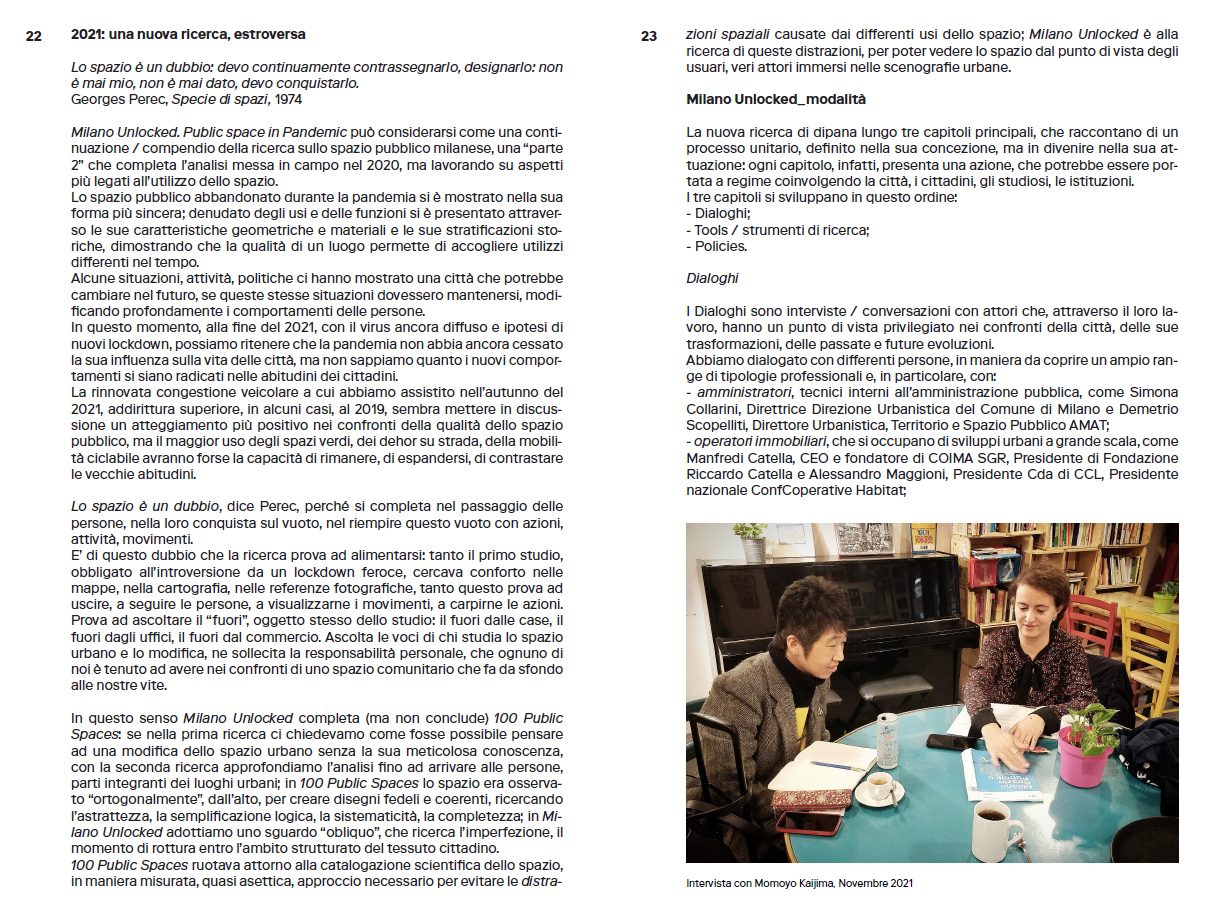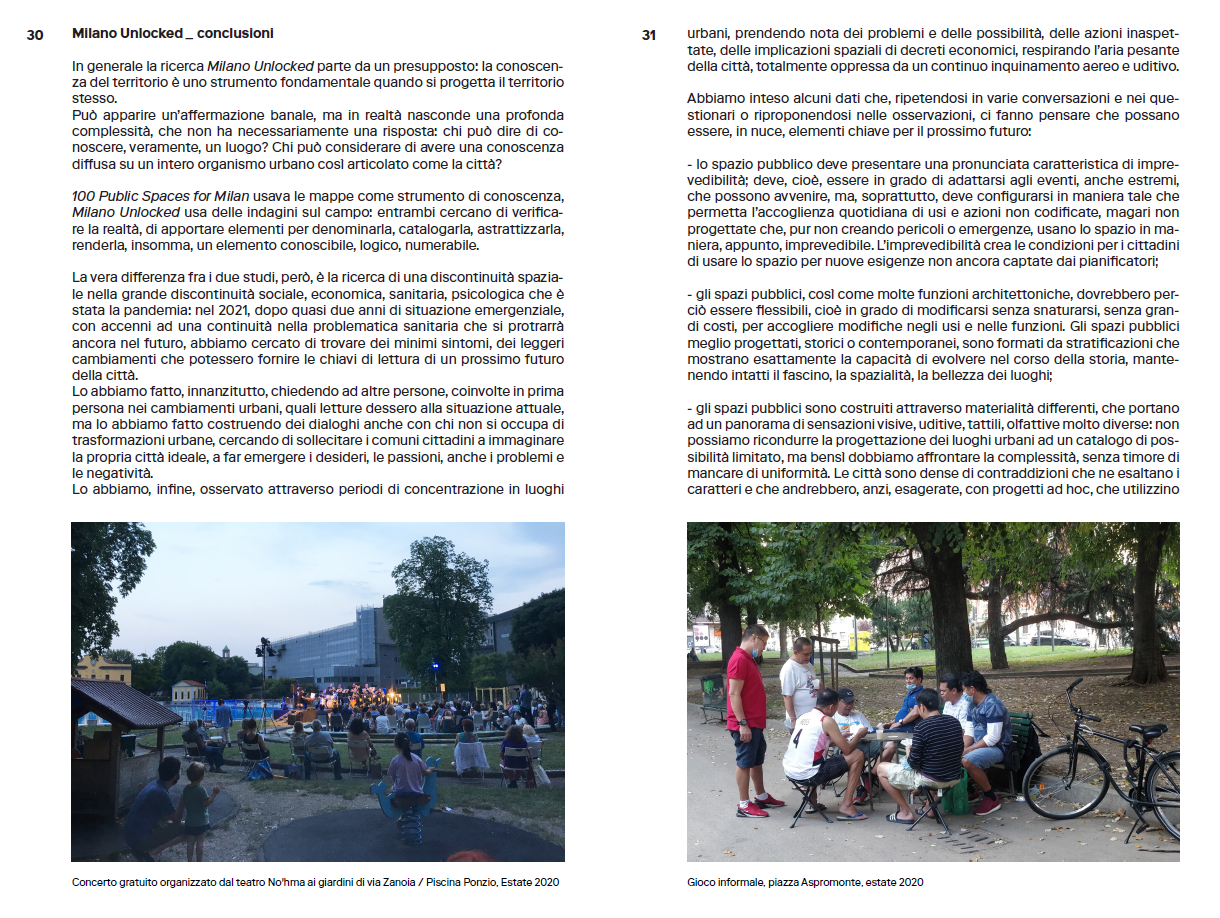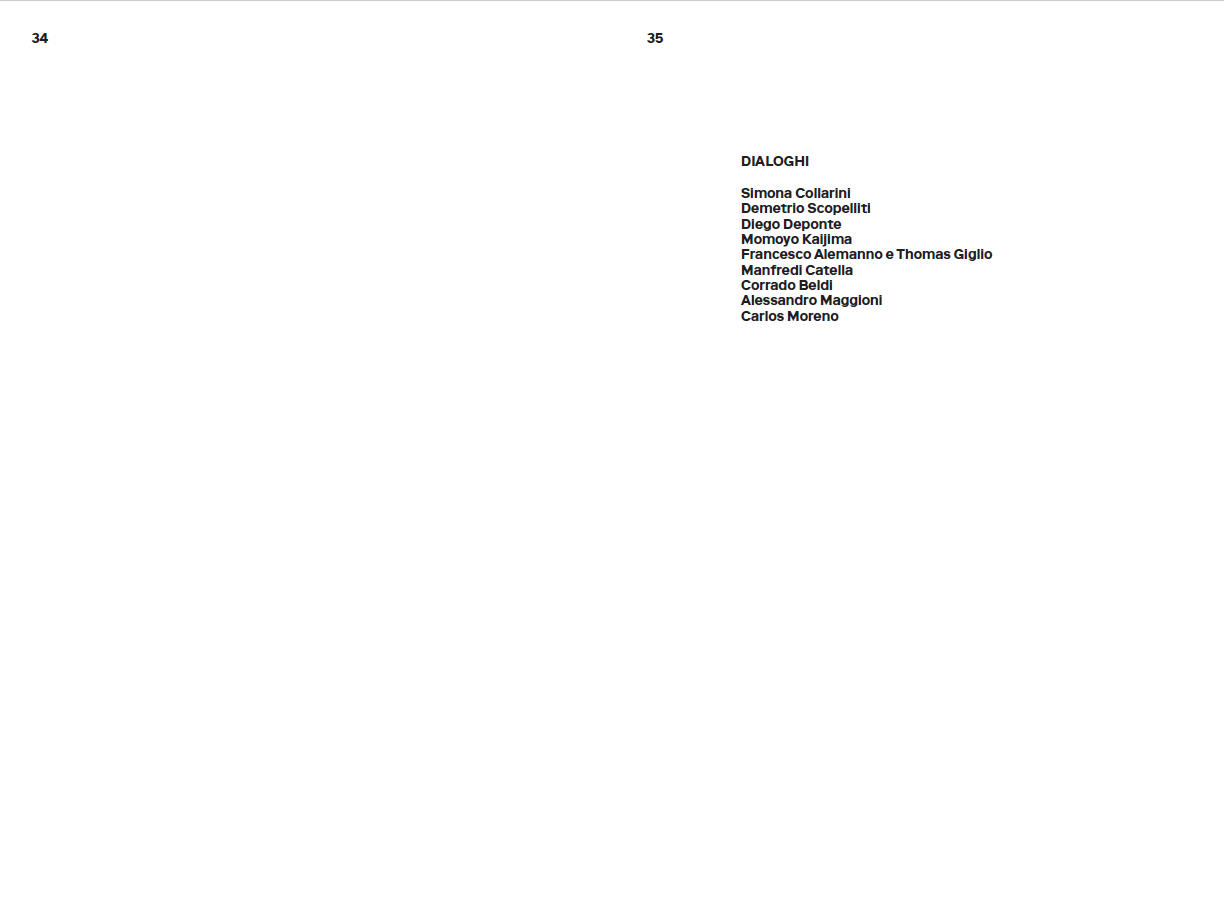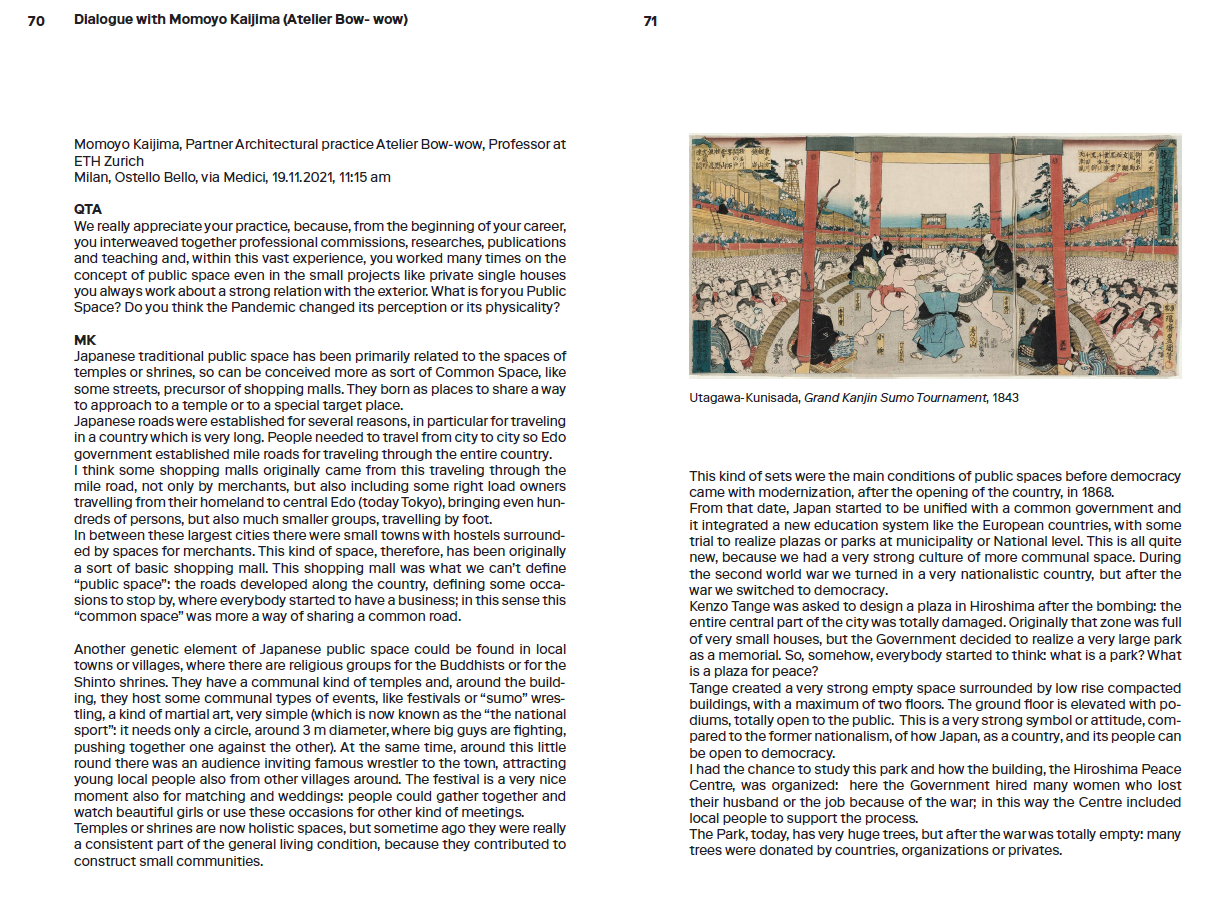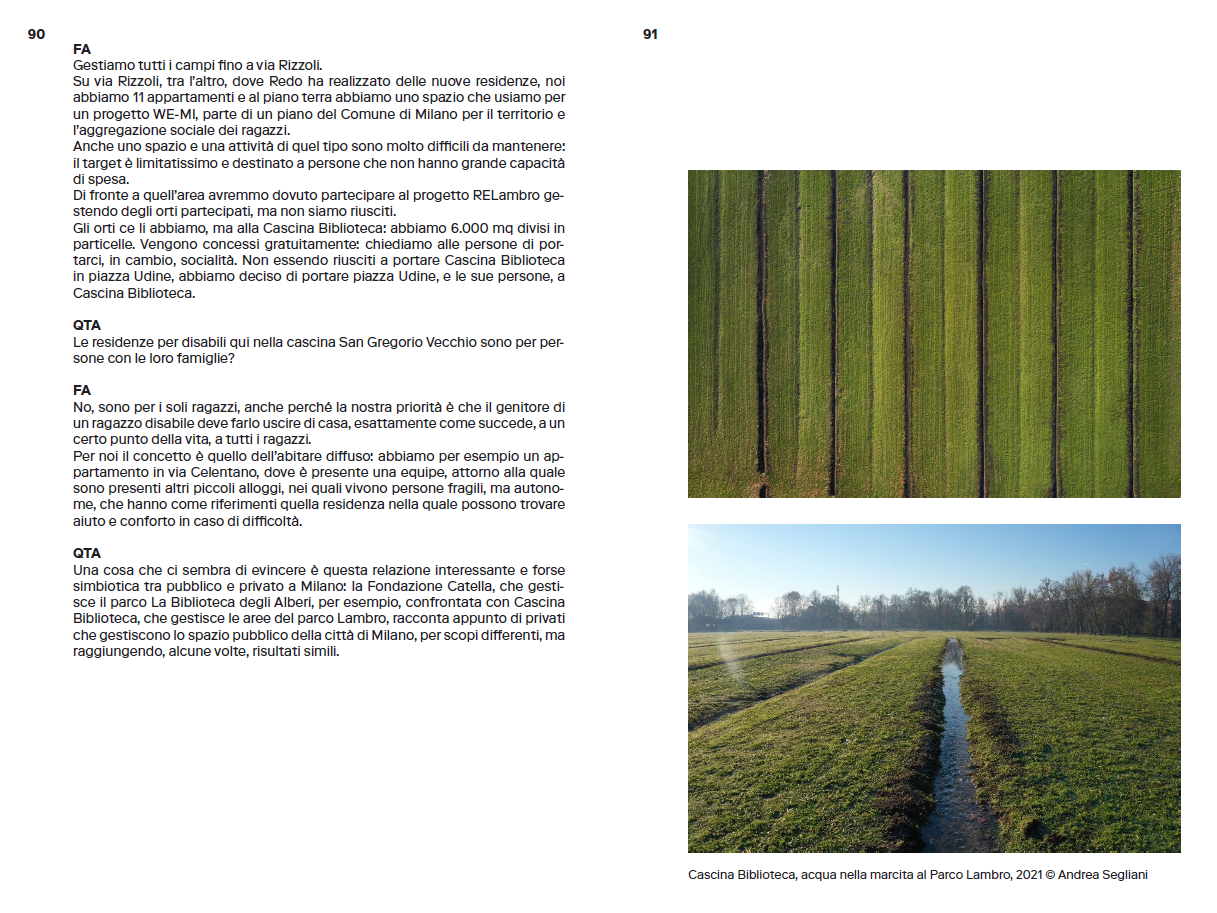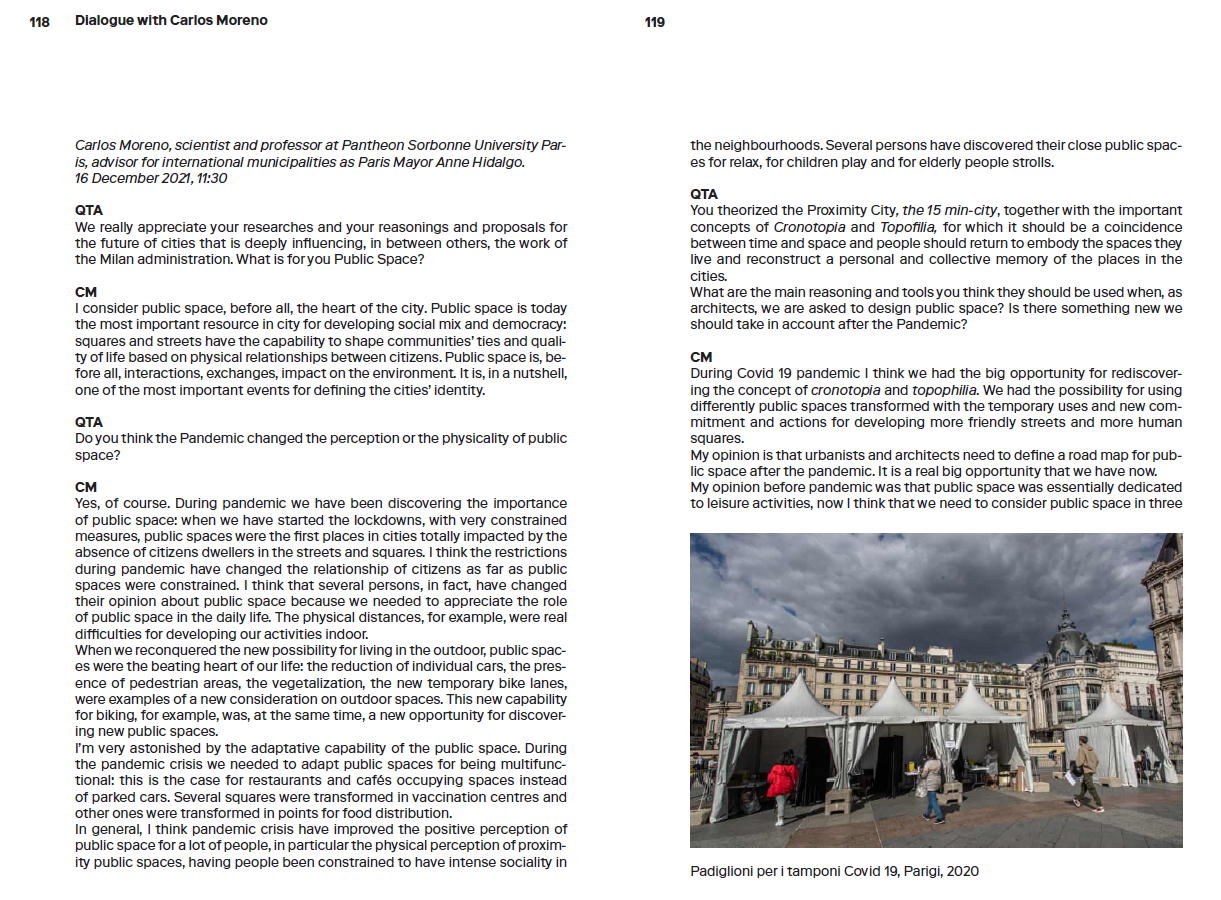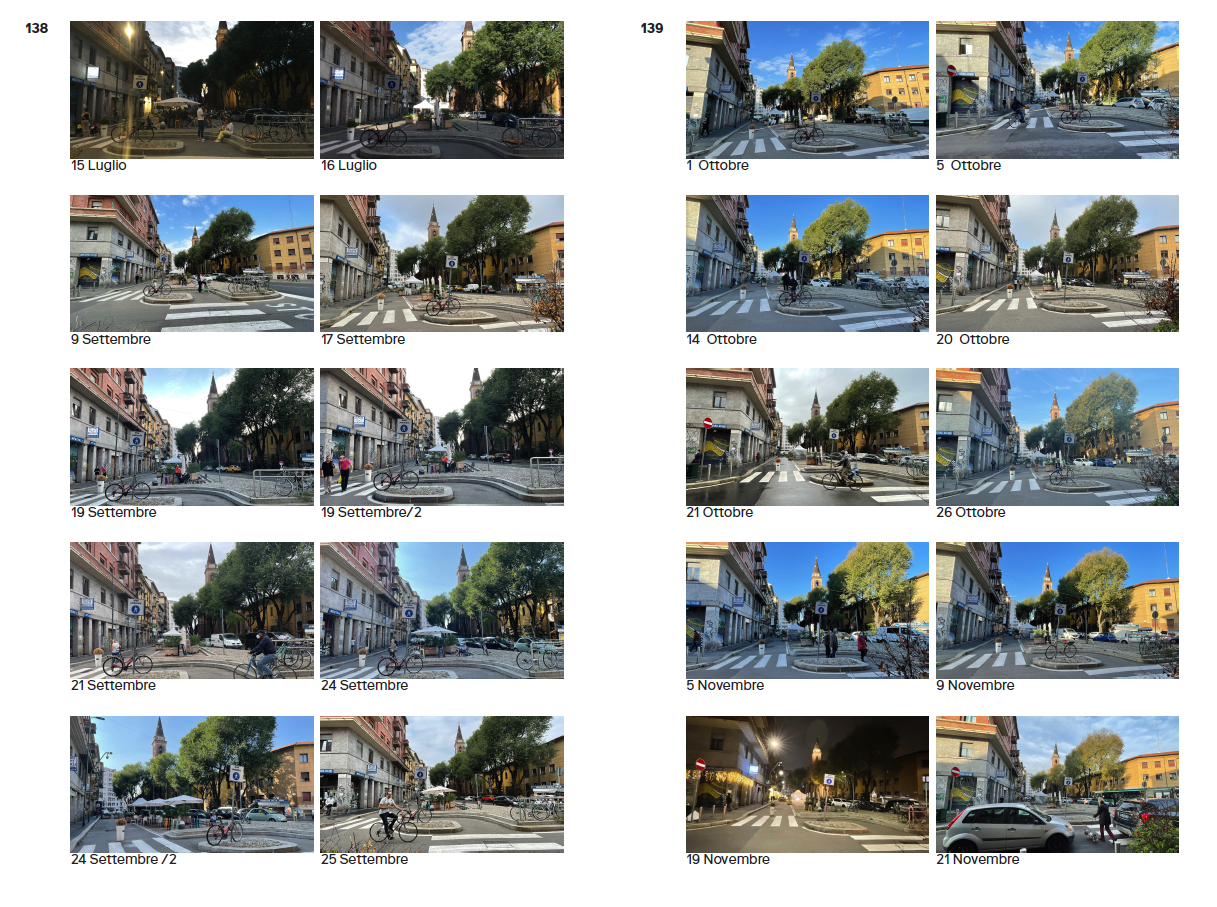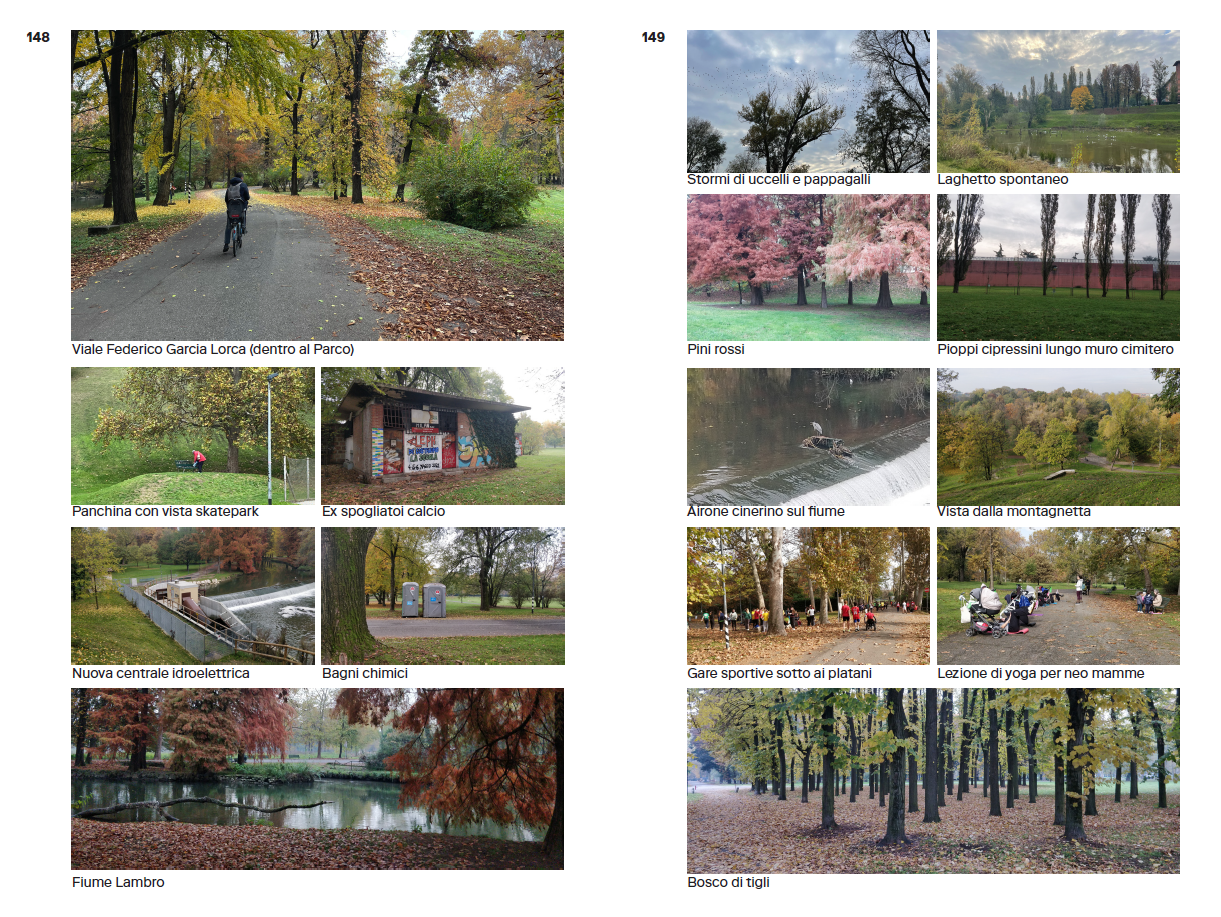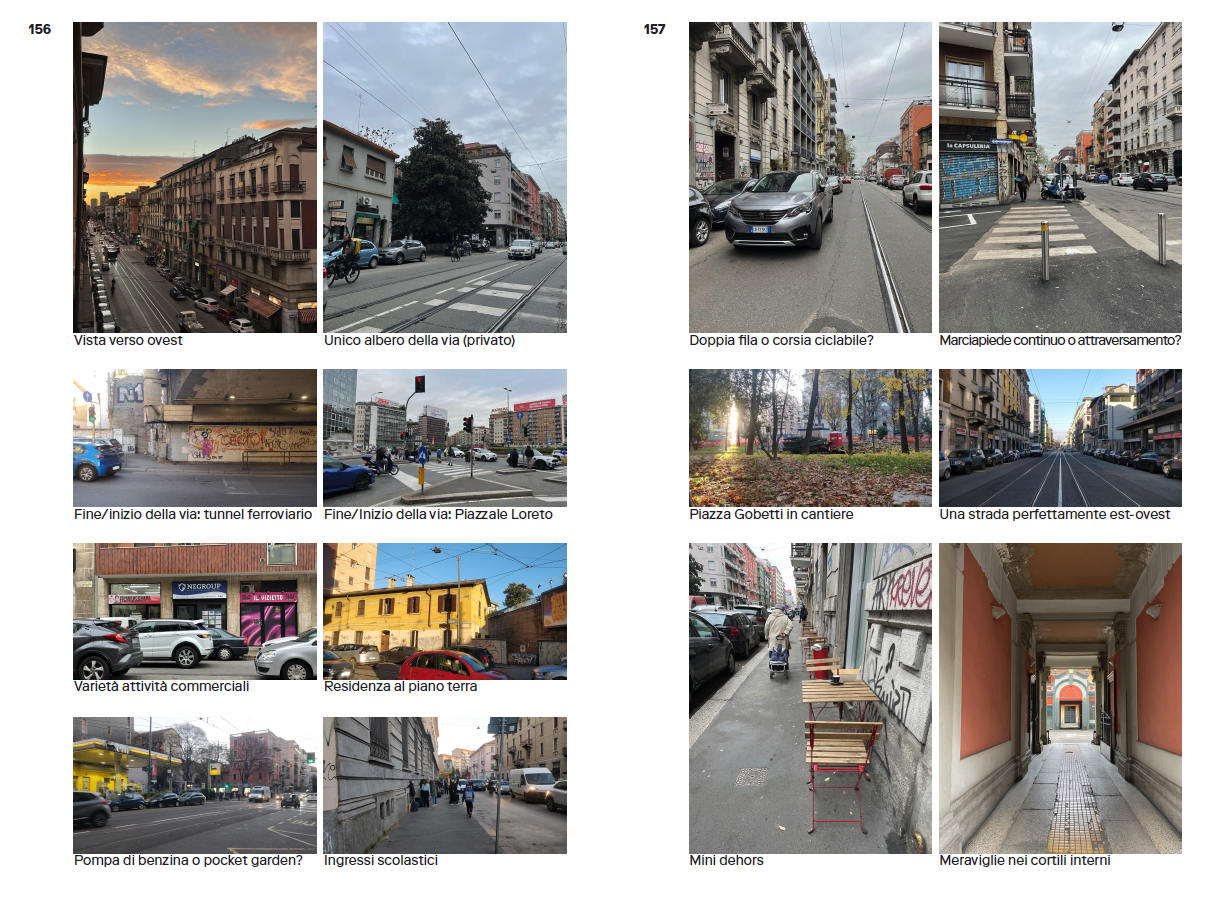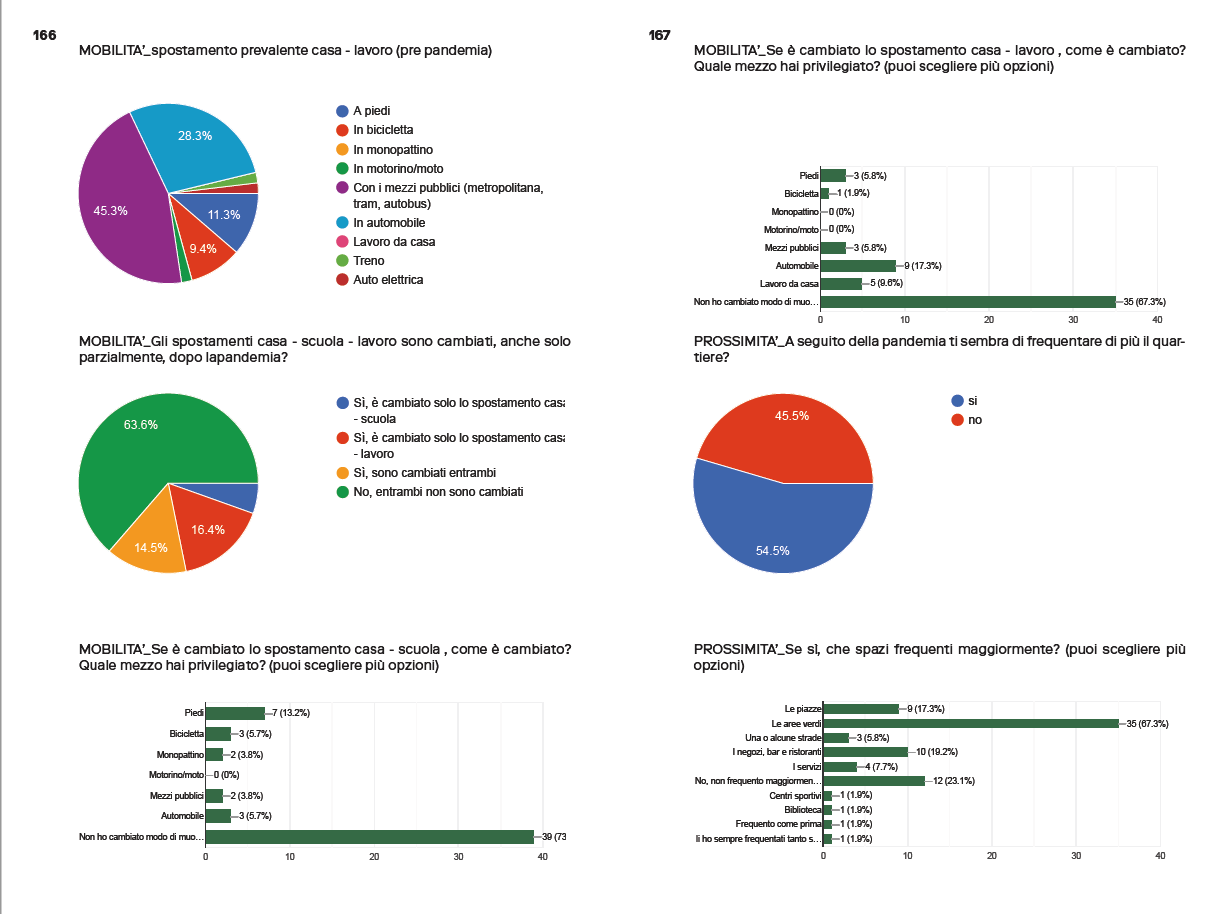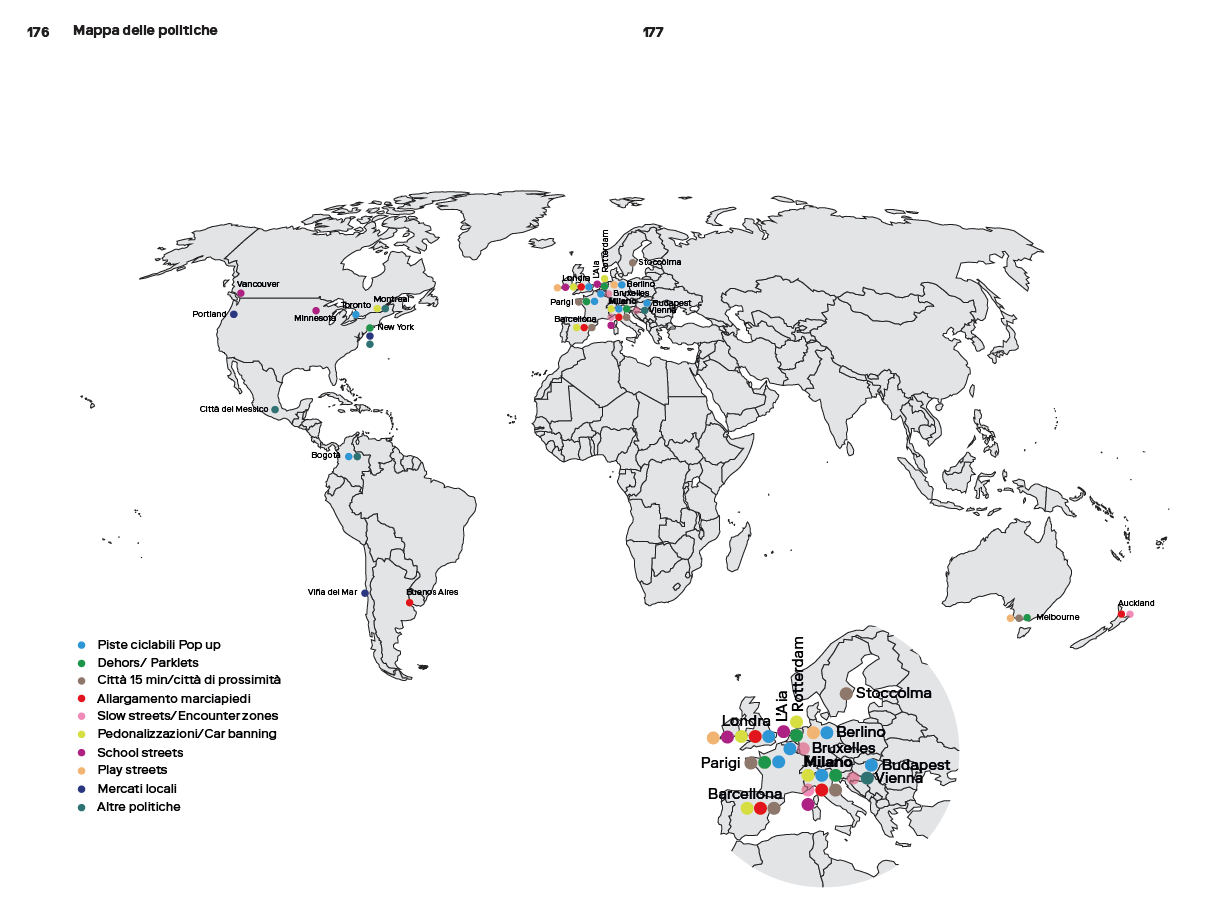Public program and urban research within the Triennale Urban Center 2021 program.
Milan, Italy, 2021
Public space as a symbol of the crisis, but also a place for a possible solution
The pandemic has transformed the use of the city.
Did it do temporarily or permanently? Could it have also changed its evolution? Is the pandemic a crisis like any of the recent ones that have already been experienced (international terrorism, economic / financial crisis, immigration-emigration, etc.), or does it act more deeply on the way we inhabit the planet, and therefore cities? Is the Pandemic just a lens, a catalyst that amplifies latent phenomena or is it producing new ones?
There are spies that suggest that something is changing, something that perhaps was already in place, capable of changing, and perhaps overturning, the point of view on the city and its public space, they are the flywheel of innovative design experiences, suitable for facing the crisis, but which carry the seed of possible extreme changes.
While the research 100 Public Spaces for Milan was an “introverted” work, carried out essentially during the lockdown, thus trying to investigate the spaces of the city without a real possibility of visiting, meeting and exchanging, the new Milan unlocked. Public Spaces in Pandemic research tries to establish itself as an “extroverted” survey, which brings direct examples in the field, above all by evaluating the uses of people towards space.
The new research works as a big dialogue with people, talking to them, observing them, urging them to start a reflection on the uses of public spaces: it is a form of investigation that tries to improve the analysis of the city not only mapping, cataloguing and promoting big scale strategies, but adding a deep observation on the activities held in the everyone’s space.
It is a research, but we can also define it as a process, that can be developed by municipalities, administrations, agencies in order to obtain a strong knowledge on the urban territory, which is the foundation of every project on the city.
Milano Unlocked, therefore, develops itself by 3 main chapters:
- Dialogues;
- Tools;
- Policies.
In the dialogues we talk with actors who are currently working on the transformation of the city: we ask them to tell about the relation between public space/city/citizens/pandemic.
We talk about different point of views (administrators, stakeholders, scholars, designers, consultants), in order to achieve a broad reflection on the current situation.
The Tools want to suggest a sort of method, where peculiar places of the city are “investigated” by surveys, from dawn to dusk, taking notes of everything: people, car, public transports movements, actions on public spaces, materials, smells, noises, voices, weather conditions, sun, air, trees, …
They are moment of observation’s concentration, to see if something happened to the public realm, even by micro-conditions.
Form is the other tool: we ask people their conditions and the impressions about public space after the pandemic. We measure the answers, we take in account the desires, the expectations, the happiness, the sadness.
We push people to think about the public space, noticing that sometime they don’t realize that it is an everyone’s space, where everybodies have a responsibility.
We end the research by a collection of policies that Milan and other cities in the world adopted to face the pandemic situation: they are strategies and projects that can exploit the pandemic to accelerate the process of spatial improvements in the urban territory.
Milano unlocked defines a setting for upcoming modification of the cities: it can help in analyse and find solutions for the future of public spaces, not only in Milan, but also in other countries.

